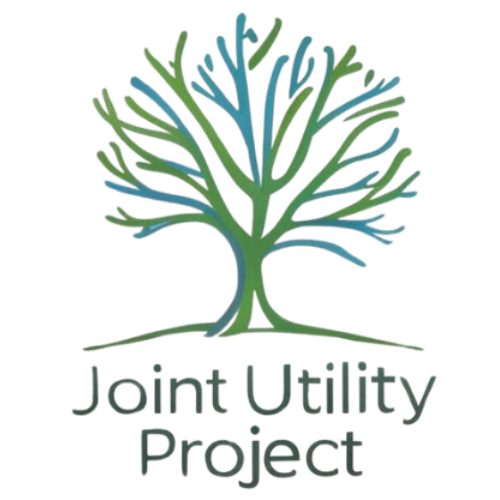New Legislation and Regulations for Recycling Batteries and Solar Panels in the USA
Share
New Legislation and Regulations for Recycling Batteries and Solar Panels in the USA
As the United States accelerates its transition to renewable energy, the volume of end-of-life solar panels and batteries is surging. These materials contain valuable resources like critical minerals, but they also pose environmental risks if not managed properly, including hazardous waste concerns and fire hazards from lithium batteries. In response, federal and state governments have introduced new regulations and proposals in 2024 and 2025 to promote recycling, reduce landfill waste, and ensure safer handling. This blog post explores the key developments as of July 2025, highlighting efforts to build a circular economy for renewables.
Federal Developments: EPA's Push for Universal Waste Rules
At the federal level, the Environmental Protection Agency (EPA) is leading efforts to update the Resource Conservation and Recovery Act (RCRA) universal waste regulations. In October 2023, the EPA announced a rulemaking to add end-of-life solar panels to the universal waste category and create a distinct category for lithium batteries. This proposal aims to streamline management, encourage recycling, and address safety issues like battery fires.
Key provisions include:
- For solar panels: Adding hazardous waste solar panels (those containing metals like lead) to universal waste rules, applying streamlined requirements for handling, storage, and transport to boost recycling rates and divert waste from landfills.
- For lithium batteries: Establishing a new universal waste category with enhanced safety standards based on industry best practices, to prevent fires and promote recovery of critical materials.
The rationale emphasizes conserving resources, reducing regulatory burdens, and supporting clean energy growth. Timelines indicate the proposed rule was expected to be signed in June 2025, following OMB review earlier in the year, though finalization may extend into 2026. No major new federal bills, such as the "One Big Beautiful Bill Act" signed on July 4, 2025, directly address recycling specifics for these materials.
State-Level Developments: Leading Examples from Washington, California, and Colorado
States are filling federal gaps with extended producer responsibility (EPR) laws, requiring manufacturers to fund and manage recycling programs. Here's a summary of notable 2024-2025 updates:
| State | Focus Area | Key Legislation/Regulation | Status and Details |
|---|---|---|---|
| Washington | Solar Panels | Photovoltaic Module Stewardship and Takeback Program (Chapter 70A.510 RCW, from SB 5939 in 2017) | Requires manufacturers to provide free recycling for panels sold after July 1, 2017. As of July 1, 2025, panels cannot be sold without an approved stewardship plan. However, a 2025 legislative proposal seeks to delay implementation due to manufacturers opting out, which could raise costs and limit supply. An advisory committee is proposed to resolve issues. Effective: July 1, 2025 (potential delay pending). |
| California | Batteries | Responsible Battery Recycling Act of 2022 (AB 1555) | Producers must handle collection and recycling of rechargeable batteries; prohibits disposal in trash due to toxic metals. Ongoing implementation with performance tracking. Effective: 2022, with continued enforcement. |
| California | Solar Panels | Proposed AB 2 (2023-2024): Recycling Solar Photovoltaic Modules | Would have expanded e-waste laws to include solar PV modules, setting recycling fees by October 2026 and requiring management plans. The bill failed in committee on September 1, 2023, with no 2025 revival. Status: Not enacted. Existing hazardous waste rules apply to panels. |
| Colorado | Batteries | SB 163: Battery Stewardship Act (2025) | Establishes EPR for portable and medium-format batteries. Producers must join a stewardship organization to finance statewide collection and recycling. Includes targets, education, and landfill bans. Passed: May 8, 2025; Signed: June 4, 2025 (assumed based on awaiting signature in May). Effective: Producers participate by August 2027; full system by 2029; landfill ban January 2030. |
Other states like Illinois and New Jersey are exploring similar EPR for batteries and renewables, but progress varies. These laws reflect a trend toward holding producers accountable, driven by increasing waste volumes and environmental imperatives.
Conclusion: Toward a Sustainable Future
These federal proposals and state laws mark significant progress in managing renewable waste, potentially recovering billions in materials while minimizing hazards. However, challenges like implementation delays and varying state approaches highlight the need for coordinated action. Stakeholders, including manufacturers and recyclers, should monitor updates from agencies like the EPA and state departments. For those in the industry or consumers, checking local regulations is essential to comply and contribute to a greener economy.
Links (References)
Here are the sources cited above, with direct links for further reading:
- [0] Recycling Laws By State – Call2Recycle: https://www.call2recycle.org/recycling-laws-by-state/?srsltid=AfmBOooeHmjBIzoZh30I1QQwcKA5ZUsa2qednTZ72ShYaPYnz00DNoE-
- [1] Solar panels - Washington State Department of Ecology: https://ecology.wa.gov/waste-toxics/reducing-recycling-waste/our-recycling-programs/solar-panels
- [3] Colorado Legislature Passes Landmark Battery Stewardship Legislation: https://productstewardship.us/colorado-legislature-passes-landmark-battery-stewardship-legislation/
- [7] Update: Colorado legislature passes battery EPR bill: https://www.recyclingtoday.com/news/colorado-legislature-passes-battery-epr-bill/
- [26] End-of-Life Solar Panels: Regulations and Management | US EPA: https://www.epa.gov/hw/end-life-solar-panels-regulations-and-management
- [27] Two RCRA Rules to Watch in 2025 - Lion Technology: https://www.lion.com/lion-news/january-2025/two-rcra-rules-to-watch-in-2025
- [28] A Review of 2023/2024 E-Waste Regulatory and Law Changes - ERI: https://eridirect.com/blog/2024/01/a-review-of-2023-2024-e-waste-regulatory-and-law-changes/
- [32] How is California Doing with Recycling Rechargeable Batteries?: https://dtsc.ca.gov/how-is-california-doing-with-recycling-rechargeable-batteries/
- [34] The “One Big Beautiful Bill” Act – Navigating the New Energy Landscape: https://www.sidley.com/en/insights/newsupdates/2025/07/the-one-big-beautiful-bill-act-navigating-the-new-energy-landscape
- [38] AB 2: Recycling: solar photovoltaic modules. | Digital Democracy: https://calmatters.digitaldemocracy.org/bills/ca_202320240ab2
- [40] The Rechargeable Battery Association: Battery Regulations & Safety: https://www.prba.org/
- [41] Washington State's new solar panel recycling requirements set to begin in 2030: https://www.solarpowerworldonline.com/2025/05/washington-states-new-solar-panel-recycling-requirements-set-to-begin-in-2030/
- [45] Solar panels - Washington State Department of Ecology: https://ecology.wa.gov/waste-toxics/reducing-recycling-waste/our-recycling-programs/solar-panels
- [46] Colorado Legislature Passes Landmark Battery Stewardship Legislation - Product Stewardship Institute: https://productstewardship.us/colorado-legislature-passes-landmark-battery-stewardship-legislation/
- [47] AB 2: Recycling: solar photovoltaic modules. | Digital Democracy: https://calmatters.digitaldemocracy.org/bills/ca_202320240ab2
- [48] SOLAR PANEL AND LITHIUM BATTERY UNIVERSAL WASTE ...: https://www.epa.gov/system/files/documents/2025-02/universal-waste_olem_oct-2024_final.pdf
